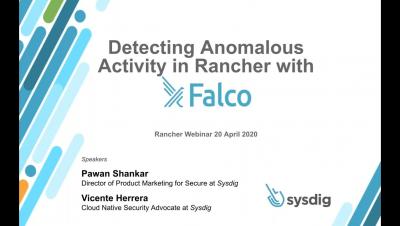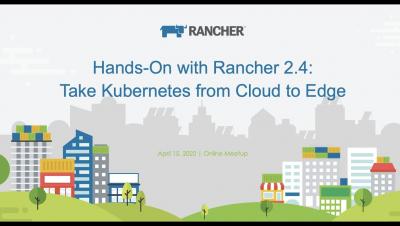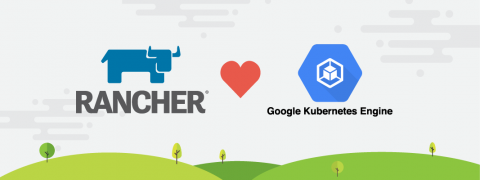Operations | Monitoring | ITSM | DevOps | Cloud
Rancher
Enabling More Effective Kubernetes Troubleshooting on Rancher
As a leading, open-source multi-cluster orchestration platform, Rancher lets operations teams deploy, manage and secure enterprise Kubernetes. Rancher also gives users a set of container network interface (CNI) options to choose from, including open source Project Calico.
Kubeflow: The Answer to AI and ML in Kubernetes?
Kubeflow v1.0 was released on March 2, 2020 Kubeflow and there was much rejoicing. The banner announcement, “Cloud-Native ML for Everyone,” while clearly hyperbole, is evidenced by the streamlined command-line interface (CLI), informative and intuitive dashboard and comprehensive cloud provider documentation. Compounded with a best-in-class product suite supporting each phase in the machine learning (ML) lifecycle, Kubeflow stands unrivaled in the arena of ML standardization.
April 2020 Online Meetup: Hands On with Rancher 2 4 -- Take Hybrid Cloud Kubernetes to the Edge
Google Cloud Kubernetes: Deploy Your First Cluster on GKE
Google, the original developer of Kubernetes, also provides the veteran managed Kubernetes service, Google Kubernetes Engine (GKE). GKE is easy to set up and use, but can get complex for large deployments or when you need to support enterprise requirements like security and compliance. Read on to learn how to take your first steps with GKE, get important tips for daily operations and learn how to simplify enterprise deployments with Rancher.
Kubernetes on Azure: Deploy and Manage Your First Cluster in AKS
Most Kubernetes deployments live on the cloud. According to the CNCF, while 63 percent of companies use AWS for Kubernetes, 29 percent are deploying Kubernetes on Azure, and the number is rapidly growing. Microsoft Azure provides mature Kubernetes tools, primarily the Azure Kubernetes Service (AKS). In this post, we’ll show you how to run your first Kubernetes cluster on AKS, and how to manage enterprise Kubernetes deployments on AKS with Rancher.
Running Google Cloud Containers with Rancher
Rancher is the enterprise computing platform to run Kubernetes on-premises, in the cloud and at the edge. It’s an excellent platform to get started with containers or for those who are struggling to scale up their Kubernetes operations in production. However, in a world increasingly dominated by public infrastructure providers like Google Cloud, it’s reasonable to ask how Rancher adds value to services like Google’s Kubernetes Engine (GKE).
Rancher 2.4 Enhances Security with CIS Benchmark Scanning
Editor’s note: Rancher Labs’ William Jimenez provides an introduction to CIS Scan. Then Saiyam Pathak takes over with a hands-on demo. Cluster security is critical to any successful Kubernetes strategy. Recent research by AimPoint revealed that 44 percent of respondents had delayed application production due to security concerns around Kubernetes containers. Yet securing Kubernetes is a complex machine with many moving parts, integrations and knobs and levers.
Fighting COVID-19 One Kubernetes Cluster at a Time
Recently the leadership at Rancher Labs challenged all of us to think about ways we can contribute to the community during this current crisis. Coming up with ways to help in such an overwhelming situation is quite daunting. Since most needs are medical related, finding ways to apply software isn’t obvious. When I heard about Folding@home’s (FAH) efforts to reprioritize their computing resources toward COVID-19 research, I was immediately curious.
Privacy Protections, PCI Compliance and Vulnerability Management for Kubernetes
Containers are becoming the new computing standard for many businesses. New technology does not protect you from traditional security concerns. If your containers handle any sensitive data, including personally identifiable information (PII), credit cards or accounts, you’ll need to take a ‘defense in depth’ approach to container security. The CI/CD pipeline is vulnerable at every stage, from build to ship to runtime.











